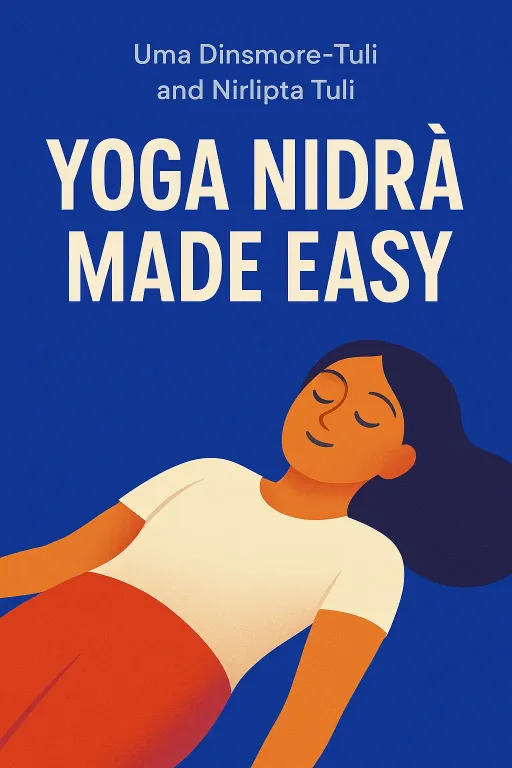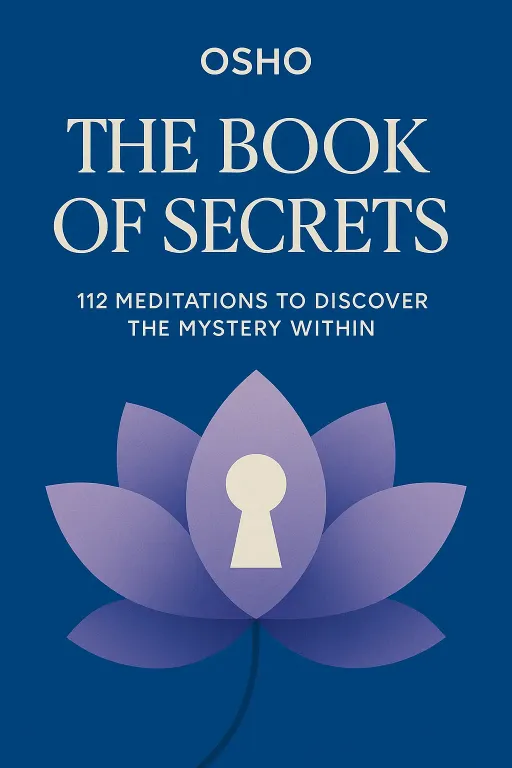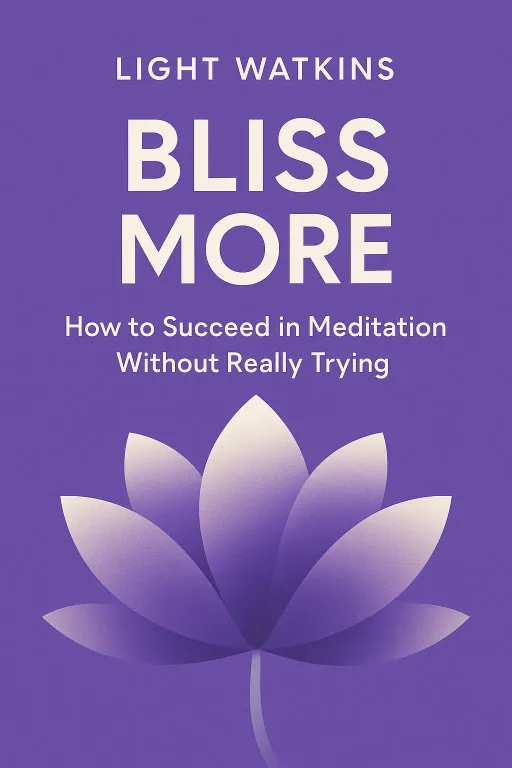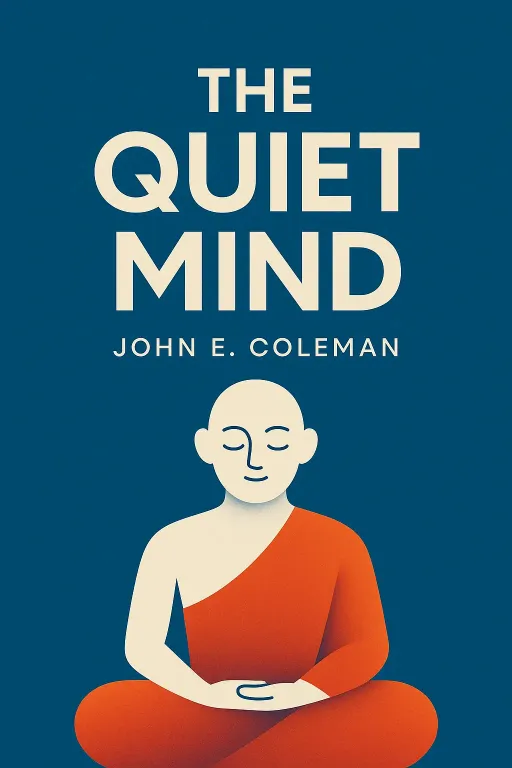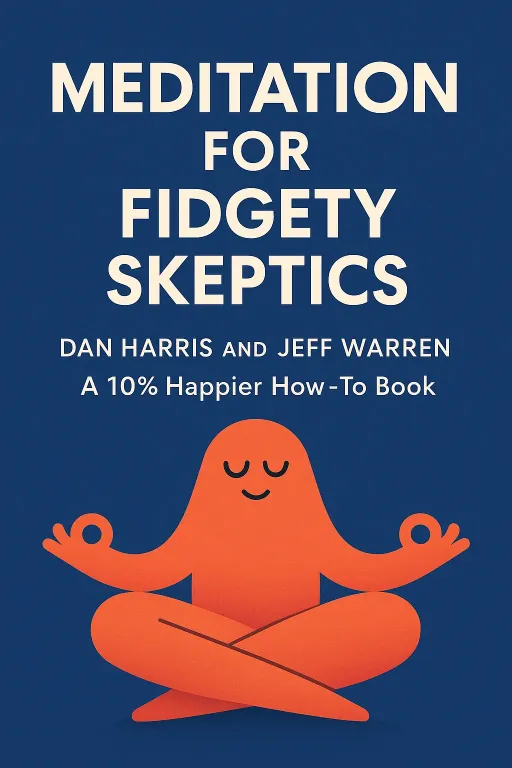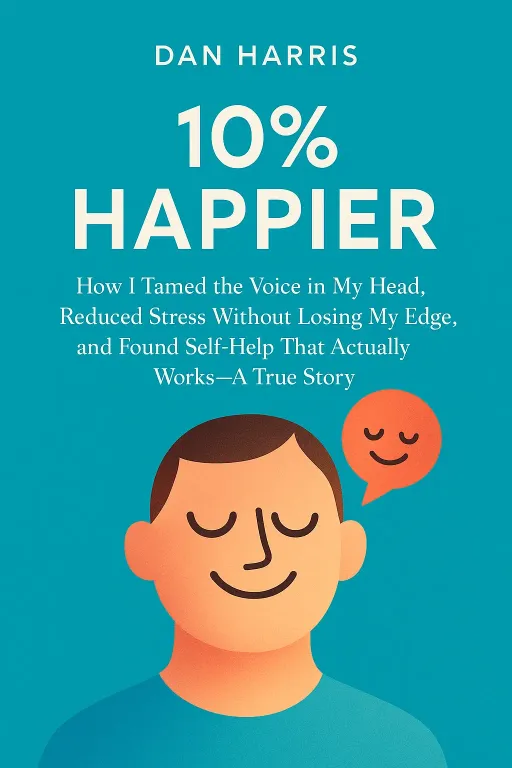
The Skeptic's Guide to Happy
15 minGolden Hook & Introduction
SECTION
Laura: Okay, Sophia, I'm going to say the title of a book, and I want your gut reaction. 10% Happier. Sophia: Sounds like a self-help book written by an accountant. Like, "Let's not get crazy, just a marginal increase in joy, please. File it under 'Q2 Emotional Projections'." Laura: That is a hilarious and perfect guess. But the author is about as far from an accountant as you can get. Today we are diving into 10% Happier: How I Tamed the Voice in My Head, Reduced Stress Without Losing My Edge, and Found Self-Help That Actually Works, by Dan Harris. Sophia: Dan Harris… the name sounds familiar. Laura: It should. He’s this Emmy-award-winning ABC News anchor. A guy who spent 21 years covering wars in Iraq, Afghanistan, Israel… the last person on earth you'd expect to write a book on meditation. Sophia: Wait, a war correspondent? How does someone like that end up writing a self-help book? That feels like two different universes colliding. Laura: They collided in the most spectacular way possible. His journey starts not in a warzone, but in a brightly lit television studio, in front of millions of people, where his mind completely self-destructed on live TV.
The Crisis of the Modern Mind: When the Ego Self-Destructs
SECTION
Sophia: Oh my god, you can't just leave it there. On live TV? What happened? Laura: It was June 7, 2004. He’s filling in as the news reader on Good Morning America. He’s at the desk, Charles Gibson and Diane Sawyer are the main hosts. It's a huge national audience. He starts reading the headlines, and everything seems fine. But then, during the second story, a wave of pure, unadulterated panic hits him. Sophia: No. That is my literal worst nightmare. Laura: He describes it as a feeling of "air hunger." His lungs felt like they weren't working. His mouth went dry, his palms started sweating, and this voice in his head just started screaming. He’s trying to read the teleprompter, but the words are swimming. His heart is hammering against his ribs. He said it felt like he was being stabbed in the brain with fear. Sophia: I'm having secondhand anxiety just hearing this. What did he do? Did he just… run off the set? Laura: He somehow managed to stumble through a few more lines, but his speech was becoming incoherent. He even flubbed a line about cancer research, making it sound like he was talking about "cancer production." Finally, he just gives up. He looks at the camera and says, "Uh, that does it for news," and abruptly cuts back to the main anchors, several minutes early. Sophia: Wow. The humiliation must have been off the charts. What was the cause? Was it just a random panic attack? Laura: That's what he wanted everyone to believe. He told his bosses it was a fluke. But the truth was, this was the culmination of years of a certain way of living. He was driven by this relentless ambition. His father had a motto he’d adopted: "The price of security is insecurity." He believed constant worry and hypervigilance were the keys to success. Sophia: I mean, that sounds like the internal monologue of every successful person I know. That little bit of anxiety is what keeps you sharp, right? Laura: That's the conventional wisdom, but for him, it had curdled into something toxic. On top of the professional pressure, he was also dealing with a low-grade depression after years of covering war zones. He’d seen some truly horrific things, and instead of processing it, he started self-medicating. Sophia: Ah, there's the other shoe. Laura: Exactly. He’d started using cocaine and ecstasy. Not a full-blown addict, but enough to seriously mess with his brain chemistry. A friend of his once told him, "You have the soul of a junkie," meaning he was always chasing the next high, whether it was a big story or a drug. That on-air meltdown was the bill coming due for all of it—the ambition, the stress, the drugs, and this incessant, critical voice in his head. Sophia: It’s fascinating that the very engine he thought was driving his success—that inner voice, that ambition—was actually the thing that caused him to publicly implode. So after this massive, public humiliation, where do you even begin to pick up the pieces? Laura: Well, his first step was seeing a doctor, who diagnosed him with depression and told him, quite bluntly, that his drug use had to stop because it was turbo-charging his anxiety. But quitting the drugs didn't solve the root problem: the voice in his head. The narrator that was constantly judging, planning, and worrying. That’s what sent him on this bizarre, skeptical quest into the world of self-help and spirituality.
The Skeptic's Search: From 'Woo-Woo' Gurus to Grounded Science
SECTION
Sophia: Okay, I can just picture a hard-nosed journalist wading into the self-help aisle. It feels like a recipe for a comedy of errors. Laura: It absolutely was. His first major encounter was with the work of Eckhart Tolle, author of A New Earth. And Tolle’s diagnosis of the problem resonated with him. Tolle talks about the "ego," this false sense of self that lives on comparing, complaining, and being dissatisfied. Harris read that and thought, "That's it! That's the asshole in my head!" Sophia: Right, identifying the problem is one thing. But what was the solution? Laura: This is where the frustration began. Tolle’s advice was… abstract. He’d say things like, "Always say ‘yes’ to the present moment." Or that becoming free of the ego is a "very small job." Harris interviewed him, hoping for a practical, step-by-step guide, and Tolle was just this serene, enigmatic figure who claimed he never got angry. Sophia: That's so unhelpful! "Just be present" is not advice! It's like telling someone who's drowning to "just swim." If they could, they would be! Laura: Precisely. His journey continued. He profiled Deepak Chopra, another giant of the self-help world. Chopra would say these incredibly profound things, like, "If you are not perpetually surprised by the fact that you exist you don’t deserve to be here." But then, in the next breath, he’d be on his BlackBerry, worrying about his appearance, and spouting what Harris called "arias of incomprehensible word salad." Sophia: It sounds like he was running into a lot of gurus who talked the talk but didn't offer a clear path to walk the walk. Laura: Exactly. He was getting more and more disillusioned. He even investigated figures from The Secret, like Joe Vitale, who promoted the "Law of Attraction." Vitale told him, "You are the Michelangelo of your own life. The David that you are sculpting is you—and you do it with your own thoughts." Sophia: Okay, but what about tsunamis? Or cancer? Do you just "think" those away? That philosophy has always felt so victim-blamey to me. Laura: Harris pushed him on that exact point, and Vitale basically had no good answer. The whole self-help quest was turning into a dead end. He was about to give up, thinking it was all just "woo-woo" nonsense. But then he stumbled upon a different path, through a psychiatrist named Mark Epstein. Sophia: And what was different about him? Laura: Epstein was part of a group of thinkers sometimes called the "Jew-Bus"—Jewish intellectuals who were drawn to Buddhism in the 60s and 70s. They approached it not as a religion full of dogma and ritual, but as a practical, psychological system for understanding the mind. There was no pseudoscience, no grand claims. Epstein could describe the ego with this witty, relatable clarity that just clicked for Harris. Sophia: So, it was Buddhism stripped of the mysticism? Laura: Exactly. And crucially, it was backed by science. This was the turning point. He learned about neuroplasticity—the idea that the brain can actually change. He discovered a Harvard study where researchers did MRI scans on people before and after an eight-week meditation course. Sophia: And what did they find? Laura: They found that the parts of the brain associated with self-awareness and compassion actually grew thicker. They had more gray matter. And the amygdala, the part of the brain that controls the fight-or-flight stress response, actually shrank. Sophia: Whoa. So it's not just a feeling, it's a physical change. It’s not magic, it's a workout for your brain. This I can get behind. Laura: That was his exact reaction. Suddenly, meditation wasn't some vague, hippie activity. It was a tangible, evidence-based exercise. He learned about a technique called mindfulness, which isn't about clearing your mind or stopping your thoughts. It's just about paying attention to your breath, and when your mind wanders—which it will, a million times—you just gently, without judgment, bring your attention back. Sophia: Okay, that sounds more doable. But what about in the heat of the moment? When you're about to lose your temper or you're spiraling with anxiety? Laura: For that, he learned a technique from a teacher named Tara Brach called RAIN. It's an acronym. R is for Recognize: "Oh, there's anger." A is for Allow: you just let the feeling be there, without trying to suppress it or judge it. I is for Investigate: you get curious about how it feels in your body. Is your chest tight? Is your face hot? And N is for Non-identification: you realize that the feeling is just a passing cloud. It's not you. Sophia: Huh. Recognize, Allow, Investigate, Non-identification. It creates a little bit of space between the feeling and your reaction. Laura: That's the whole game! It gives you a moment to respond thoughtfully instead of reacting mindlessly. It was the first piece of practical, non-bizarre advice he'd found on his entire journey.
The 10% Solution: Redefining Ambition with Mindfulness and Compassion
SECTION
Sophia: Okay, so he's found a method that's not 'woo-woo.' He has the science and a practical technique. But how does this actually work in a high-stakes, competitive job like TV news? Does he just become... soft? Does he lose his edge? Laura: That was his biggest fear. And for a while, he actually did go too soft. He confused 'letting go' with 'giving up.' His new boss, a guy named Ben Sherwood, even took him aside at one point and told him, "Stop being so Zen," because he wasn't hustling for stories anymore. Sophia: I love that. "Stop being so Zen." That's got to be a first in a corporate performance review. Laura: Right? He was in a real bind. He went back to his psychiatrist friend, Mark Epstein, and told him what his boss said. And Epstein gave him this brilliant piece of advice: "Hide the Zen." He explained that in a competitive environment, projecting serenity can be seen as weakness. The goal isn't to be a blissed-out zombie; it's to maintain your inner calm while still projecting competence and drive on the outside. Sophia: Okay, that's a fascinating distinction. Be Zen on the inside, but look like a warrior on the outside. But how do you do that without feeling like a complete hypocrite? Laura: The key, he discovered, was a concept called "nonattachment to results." This was the final piece of the puzzle that allowed him to reconcile his ambition with his mindfulness practice. Sophia: Hold on, 'nonattachment to results' sounds like a recipe for mediocrity. If you're not obsessed with winning, do you still win? How does that not kill your drive? Laura: It's a subtle but powerful shift in mindset. It doesn't mean you don't strive. You still work your butt off. You do everything in your power to succeed. But you recognize that the final outcome is largely out of your control. So you attach your sense of self-worth to your effort, which you can control, not the result, which you can't. Sophia: So you can want to win, but you don't need to win to feel okay about yourself. If you fail, it's a data point, not a verdict on your entire existence. Laura: You've got it. It makes you more resilient. You can bounce back from failure faster because your ego isn't so catastrophically bruised. This led him to his final big insight, which is what he calls "the self-interested case for not being a dick." Sophia: Now that's a chapter title I can get behind. Laura: He got it from an interview with the Dalai Lama. Harris, in his typical skeptical fashion, asked him if being compassionate was really practical in the modern world. And the Dalai Lama laughed and said, "We are selfish, but be wise selfish rather than foolish selfish." Sophia: Wise selfish? What does that even mean? Laura: His point was that being compassionate, being kind, and caring for others isn't just some altruistic, saintly act. It's actually good for you. Scientific studies back this up. Compassionate people have lower stress hormones, they're healthier, they're more popular, and they're more successful. Anger and hatred, on the other hand, are corrosive. As one Buddhist saying goes, anger has a "honeyed tip but a poisoned root." It feels good for a second, but it ultimately destroys you. Sophia: So being nice isn't just for saints, it's a life hack for the rest of us. It's a strategic advantage. Laura: It's the ultimate strategic advantage. And all of this—the nonattachment, the wise selfishness, the practical techniques—led him to his final conclusion. Meditation didn't make him a perfect, enlightened being. It just made him about 10% happier. And for a guy who started with an on-air panic attack, 10% is a massive, life-changing win.
Synthesis & Takeaways
SECTION
Sophia: It's such a compelling journey because it's so relatable. Most of us aren't going to have a panic attack on national television, but we all have that voice in our heads. That narrator that's constantly judging us, comparing us to others, and making us miserable. Laura: Absolutely. And I think the most profound insight from the book is that you can't kill that voice. Dan Harris didn't find a magic bullet to silence his ego forever. What he found was a set of tools to change his relationship with that voice. He learned to see his thoughts as just thoughts—passing events in his consciousness that he doesn't have to believe or act on. Sophia: So it's not about becoming a new person, but about becoming 10% less jerked around by your own thoughts. You're still you, with all your ambitions and flaws, but you're not a slave to your own mental chatter. Laura: Exactly. The book’s legacy, and why it became such a phenomenon, is that it gave a whole generation of skeptics permission to try this stuff. It took meditation out of the incense-filled yoga studio and placed it into the boardroom, the newsroom, and even the military. It framed it as mental fitness—a basic, practical hygiene for the mind. Sophia: It makes it feel achievable. You don't have to shave your head and move to a monastery. You can just sit for five minutes a day and become slightly less of an asshole to yourself and others. Laura: That's the 10% promise. So, just for today, here's a small action anyone can take. Try to notice your inner narrator. The voice that's commenting on this podcast, thinking about what you need to do next, or replaying a conversation from yesterday. Don't judge it, don't try to stop it. Just notice that it's there. That awareness is the first step. Sophia: I like that. It's a simple, concrete starting point. It really makes you wonder, doesn't it? What if the biggest obstacle to your happiness isn't the world outside, but the constant, unexamined chatter of the voice inside? Laura: A question worth sitting with. Sophia: This is Aibrary, signing off.
